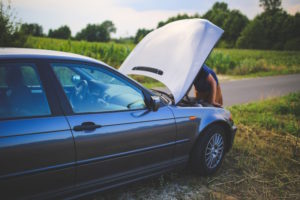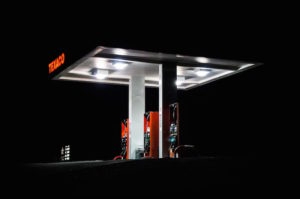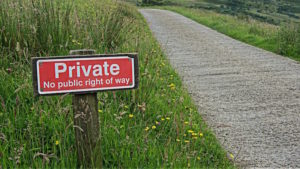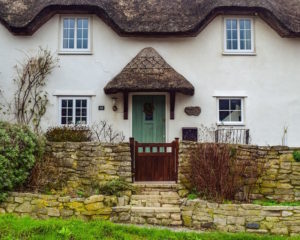VIEW OUR COMMERCIAL
As seen on TV

CHOOSE THE EASY OPTION FOR YOUR INSURANCE, WE’LL GET YOU A QUOTE IN NO TIME AT ALL.
LATEST NEWS
Whether you’re a proud owner or just a fan who dreams, classic car shows are THE place to get up close to vintage vehicles. If you’re thinking about where to go and when here is our round-up of the top nine must-visit UK classic car shows.
1) The Lancaster Classic Motorshow at the NEC
This is the UK’s biggest classic car show, with the vast halls at Birmingham’s NEC filled with vehicles, stands, and entertainment. Whether you’re looking for a spare for your MGA or thinking of investing in buying a classic, you’ll find it all here every November. Find out more.
2) Goodwood Revival
Far more than a classic car show, Goodwood revival is a way of life. You’ll have the chance to see priceless classic vehicles of all ages during this two-day event that takes place each September at the Goodwood Estate near Chichester. And it’s not just the cars that are highly polished and looking smart. Visitors get into the spirit, dressing up in vintage clothing for a weekend of retro fun. Find out more.
3) Silverstone Classic
Each year in July, engines get revving at the Silverstone Classic in Northamptonshire. Like a rolling classic car show, you can watch everything from vintage Formula one cars to iconic minis charging round the track. Find out more.
4) Practical Classics Classic Car and Restoration Show
Also held at the NEC in Birmingham, this classic car show is perfect for any classic car owner who is undertaking a restoration. You will be inspired by the hundreds of cars on display, and there’s a handy trade village packed with parts. There’s also an auction if you’re thinking of buying a classic car. Find out more.
5) Race Retro
One of the first classic car shows of the year, Race Retro is considered Europe’s top historic motorsport show. Here you can watch bygone racing and rallying greats hurtle around the course and catch a glimpse of iconic celebrities from the world of motorsport. There are also plenty of iconic racing cars to admire close-up in the Motorsport Hall of Fame and an auto-jumble filled with spares and parts. It takes place in February at Stoneleigh, near Coventry. Find out more.
6) Donington Historic Festival
Another show held at a legendary circuit, watch nine decades of racing twist and turn round the track at the Donington Historic Festival at Donington Park, Leicestershire. There are lots of cars to see on and off the track at this event that takes place each May. Find out more.
7) Beaulieu
Home of a permanent collection at the National Motor Museum, Beaulieu also hosts several classic car shows throughout the year. These tend to focus on just one marque so you can pick your favourite. Shows include Simply Porsche, Simply VW, Simply Jaguar, and Simply Land Rover. Find out more.
8) Goodwood Festival of Speed
Strictly speaking, the Goodwood Festival of Speed is not just a classic car show. With trade stands and paddocks showcasing the very latest vehicles from manufacturers around the world, this is the UK’s biggest car show. But the classics get a good look in too at this motoring mecca. See the crème de la crème at the Cartier Style et Luxe concourse and watch celebrated classics tackle the hillclimb. It’s all set against the stunning backdrop of Goodwood House near Chichester. Find out more.
9) Salon Prive
Mouths will be watering at the exceptional classics that gather for the Salon Prive at Blenheim Palace, Oxfordshire. It attracts some of the most outstanding vehicles in the world to its concourse, as it’s one of eight events that are eligible for the peninsula Classic Awards. Mixing classics, hypercars and high-society, it’s a little like a luxury garden party. It even features a Ladies Day sponsored by Boodles, ensuring the best frocks get a final outing of the season. Find out more.
Caring for your classic
Whether classic car shows are a great excuse to get your vintage vehicle out of the garage or you’re looking for a classic car to buy, read these guides:
Finally …
If you’re a classic car owner or a trip to a show has inspired you to go out and buy one, don’t forget your classic car insurance. For the best price on cover that includes agreed value and limited mileage discounts, call our friendly team at Easy2Insure on 0800 917 9522 or get a free quote.
Whether you usually drive a petrol but have switched to a diesel for the day, or you’re in a rush, it’s easy to put the wrong fuel in a vehicle accidentally. It’s estimated that it happens once less than every two minutes in the UK and costs motorists £150 million. You may be surprised to discover that nearly half of car insurance and breakdown policies won’t cover you if you do make this mistake. Luckily, misfuel insurance is available to help cover the costs. Read our quick guide to find out everything you need to know.
What is misfuelling?
Misfuelling is the name given when you put the wrong type of fuel into your vehicle.
What happens if you put diesel in a petrol car?
It’s quite hard to put diesel into a petrol vehicle. That’s because car and pump manufacturers have got together to make the hole at the top of the fuel tank of petrol cars smaller than the pump nozzle for diesel. If it does happen, the diesel will coat the spark plugs, and your vehicle could start to misfire or even fail to start at all.
What happens if you put petrol in a diesel car?
Unfortunately, the petrol pump nozzle does fit in the hole at the top of diesel fuel tanks. If you put petrol in a diesel vehicle, it can damage the engine. Depending on how far you drive with the wrong fuel, the damage can vary from requiring expensive repairs to a complete engine replacement. That’s because introducing petrol into a diesel tank reduces the lubrication, which means metal parts can rub and become damaged.
What should you do if you put the wrong fuel in your car?
Stop driving as soon as you realise your mistake. The further you drive the more damage you will do. If you realise before you start the engine, don’t turn the ignition. As soon as you start the car, the patrol will start to contaminate the engine.
You’ll need to contact a local garage or someone who can drain the tank for you or tow your car away for repairs. If you have misfuel insurance, you’ll be given a 24/7 contact number. This will mean you’ll get help quickly so you can get back on your way.
Does breakdown cover include misfuel cover?
Probably not. In most cases, breakdown cover will not include the cost of a fuel drain or for any repairs or replacement parts.
Can I claim on my main car insurance?
Don’t automatically assume that your car insurance will cover you if you misfuel. Defaqto checked over 200 car insurance policies and found that misfuelling was excluded from cover in 42% of policies.
If you’re not sure if you’re covered already, check the small print or speak to your broker. Even if it is included, bear in mind the cost of any excess you’ll need to pay and factor in the increased costs in future insurance cover as you’ll lose your no claims discount.
What about my warranty?
If you drive a new car, you won’t be covered under warranty for any repairs or replacement parts needed as a result of misfuelling.
What is misfuel insurance cover?
The average cost of fixing problems as a result of putting in the wrong fuel is £3,000. When you hold misfuel insurance, you have the peace of mind that these costs are covered. If you do put the wrong fuel in the tank, call the number you’ve been given and relax. Assuming you haven’t started the engine, someone will be on their way to drain your tank. Then they’ll give you the right fuel so that you can get back on your way again. If you’ve started the engine, they’ll drain take your car to the nearest garage. Any caravans or trailers attached to the misfuelled car will also be taken, so you don’t need to worry about those being left at the roadside.
How much does misfuel insurance cover cost?
Misfuel insurance can be an inexpensive add-on to your car insurance or stand-alone policy. The exact figure will depend on the type of vehicle you drive but could be as low as the cost of a takeaway for two.
Do I need misfuel insurance?
If you only ever drive a petrol vehicle, you’re less likely to need to misfuel insurance as it’s harder to fill up with diesel accidentally. It’s estimated that only around 5% of misfuelling is diesel put into a petrol vehicle. However, if you drive a diesel, it’s an easy mistake to make, especially if you sometimes drive a petrol car.
Where can I buy misfuel insurance?
If your car insurance does not include misfuel insurance, ask if it can be added on. If that’s not an option, you can buy a standalone policy. Speak to our friendly team at Easy2Insure for more advice. We’re independent, so we’ll shop around on your behalf to find you misfuel insurance at the best price. Call us on 0800 917 9522 or get in touch.
From urban car parks and self-build sites to agricultural fields and fishing lakes, land insurance is designed to give landowners financial peace of mind. We explain what it is and answer your questions so you can decide for yourself if you need it.
What is land insurance?
Land insurance is a specialist insurance policy designed for anyone who owns land that does not have a commercial or residential property on it. For example:
- Car parks
- Undeveloped land
- Fields, especially if you have a footpath or bridleway running through it
- Woodlands
- A development plot
- Private roads
- Vacant land (land with no structures)
- Land with structures. For example a bridge or barn
- Land used for hunting
- Self-build land
- Farmland
- Moorlands
- Sports fields
- Communal gardens
If you share a private access with one or more other landowners, land insurance can cater to multiple parties.
How does land insurance protect me financially?
Land insurance is a form of public liability insurance. It covers you from the costs associated with an injury to a person or damage to property because of something to do with your land. If someone makes a legal claim for compensation against you, your land insurance will cover the legal fees, including any compensation pay-outs.
In our no-win, no-fee world, it’s easier than ever for the public to make a claim against you. Land insurance gives you peace of mind you’re protected financially.
What can go wrong?
Unfortunately, the potential for something to go wrong on your land is almost limitless. This can include slips, trips and falls on your land. Another risk is if a branch from a tree on your land falls onto someone’s car or home. And it’s not just compensation claims that you might want to cover. Land insurance can also cover other things that go wrong. For example, if vandals start a fire and damage crops or a fence.
Does my home insurance already cover my land?
Unless the land is part of your garden, it’s unlikely it will be covered by standard home insurance. It’s also worth noting that even if the land is your garden if it is not directly attached to your property (for example it is on the other side of the road) it may not be included in your home insurance policy. Speak to your insurance broker to be sure.
Am I legally obliged to hold land insurance?
No. There is no legal requirement for you to take out land insurance. However, it may be a condition of your lender if you have purchased the land with a mortgage or loan.
Don’t forget; not taking out land insurance could end up costing you a lot more in the long run.
What happens if someone makes a compensation claim against me and I don’t have land insurance?
If you don’t have land insurance and someone makes a legal claim against you, you’ll have to pay your own legal fees. This includes solicitor costs to fight your case as well as any compensation payment that is awarded to the other party. Depending on the injury (or if an accident results in death) this can run into the £tens of thousands.
Even if the claim is settled in your favour, you may need to find a substantial amount of money to fight your case.
Do I need land insurance if my land is private property?
A member of the public can still make a personal injury claim against you even if your land is private property and they are trespassing.
What level of liability do I need?
Land insurance typically has a maximum limit of up to £1 million, £5 million or £10 million. The level you need will depend on the potential hazards on your land. For example, if you have a derelict building or water feature on your property, the risk of serious injury is considerably higher than if it is only a meadow.
How do I find the best land insurance?
Like all insurance, it pays to shop around when you are looking for land insurance. You can do this by calling as many different insurance companies as possible to get quotes. Or ask an independent insurance broker, like Easy2Insure to do this for you.
Remember, every piece of land is different and will have a different level of risk. For the best price, look for a tailored policy, which gives you the level of cover that you need without you paying for anything you don’t need.
Do I really need land insurance?
Only you can decide if you need land insurance. But an affordable payment now could save you £thousands in the future and buy you real peace of mind. If you’re still not sure if you need it, have a chat with our expert team, who can give you a free quote so you can see just how affordable land insurance can be.
It’s Easy2 find the best price land insurance
No matter what steps you take to secure your property, accidents can and do happen. Give yourself financial peace of mind when you buy land insurance. The expert team at Easy2Insure understand the unique problems faced by landowners and can help you decide what level of cover is most appropriate. We’re an independent insurance brokerage that is part of the respected Park Insurance group. When you contact us, we’ll shop around and negotiate hard on your behalf to secure you an excellent value-for-money, tailored policy. The result? Land insurance that you can rely on and that will meet your budget. Call us on 0800 917 9522 or get a free quote.
The holiday home market is a competitive one. Your approach to your holiday home decoration can make it stand out from the others on the lettings page. And that can mean a boost in bookings and income. To help you, here are our top eight tips for decorating your holiday home to maximise occupancy and increase your rental price potential.
1) Who are your target customers?
The first thing to do is to think about who your core target market is. For example, if you’ve got a holiday cottage that is a stone’s throw from the coast path you’re likely to appeal to people who enjoy walking. If you’ve got a sandy beach down the road, then maybe you want to attract the bucket and spade brigade. And if it’s a remote, thatched cottage, then you may decide that you want to target couples. Once you’ve determined who your key audience (or audiences) is, then it is time to think about what style and services will appeal to them most. For example:
- A roll top bath or wooden hot-tub will appeal to couples looking for a romantic break.
- Emphasise your property’s seaside location by decorating in hues of blue.
2) Aim to over-deliver to impress your guests
Time is precious. And your potential guests want to enjoy every precious moment of their holiday. The majority will want to stay somewhere as nice or nicer than their own home. And expectations of what a holiday home should be like are getting higher and higher. Always aim to give your guests a pleasant surprise and exceed their expectations. To do that, you’ll need to create a consistent and stylish interior. That means furnishing and decorating to a high standard.
- Don’t just use old bits of furniture you don’t want in your own house.
- Don’t just go to one shop and buy everything there. Instead, look to create a pulled-together look with some stand out features.
- Cushions can add colour or texture to a neutral scheme.
- You can create a stylish focal point using a statement artwork or piece of furniture.
3) Find the balance for successful holiday home decoration
The best holiday homes are welcoming and have personality – but not too much. It can be a delicate balancing act, but you’re aiming for something that is not bland and boring, but also not so full of individuality that your guests feel uncomfortable.
- An excellent way to get this balance is to decide on a unifying theme or colour, but don’t let it take over. Lighthouses and boats add a fun touch to a seaside home but don’t plaster them everywhere.
4) Replace items regularly and invest in quality
Items in your holiday home may need replacing more frequently than you may expect due to increased wear-and-tear. It’s also worth investing in better quality items, which are likely to stand up to use for longer. Don’t go over-the-top though.
- Steer clear of costly state-of-the-art technology.
- Do put money into the basics, like bed linen, fluffy towels, and a good quality dishwasher.
5) Small touches can go a long way
It’s often the little touches that give your guests an excellent experience rather than merely a good one.
- If you allow dogs, think about your guests’ four-legged friends. For example, by providing a ‘doggie-towel’ or a bed.
- If you use your holiday home for yourself, don’t lock away stuff for private use. Big signs on cupboards saying “private” don’t look nice and can make guests feel uncomfortable.
- Guests will also often really appreciate a good library of books, jigsaw puzzles or games too.
6) Think about the photos
Ultimately, you need to think about how your holiday home will look in the photos after you’ve decorated. Most of your guests will be viewing your property alongside lots of other online. The way your holiday home looks in the photos can make the difference between them clicking to book with you or moving on to the next option.
7) Be mindful of the value of repeat bookings word of mouth
Most people look at reviews before they book a holiday. If you have negative feedback, that can mean lost bookings. And you can be certain you won’t get any repeat custom if your guests have not been 100% happy.
- For example, people go on holiday to rest and relax. That means getting a good night’s sleep is really important. So it’s worth investing in quality mattresses and linens to help avoid negative comments.
8) Don’t forget to protect your investment with holiday home insurance
Don’t forget your holiday home insurance when you redecorate your property. It can give you peace of mind that if something does happen, you can get damaged items replaced quickly and without fuss, so you don’t let your guests down.
What you need to consider:
- Ordinary home insurance won’t cover you if you let the property as a holiday home.
- If you or a guest accidentally damage an item, accidental damage cover will pay out, avoiding costly bills or disagreements.
- Home emergency cover gives you a number to call to get issues like a burst pipe, or electrical problem sorted out quickly. That’s reassuring, especially if you don’t live nearby.
- Public liability insurance covers you if a guest is injured or a possession is damaged by something to do with your property.
- If your holiday home is left empty for long periods, make sure your holiday home insurance still covers you.
It’s Easy2Insure your holiday home
Spending a little time and money on how your holiday home looks can make all the difference to your rental income. And you need to protect this investment with holiday home insurance. Whether you have a holiday home in the UK or abroad, it’s Easy2 find the right holiday home insurance at the best price. Easy2Insure is an independent insurance broker, so we do the leg-work for you, shopping around to find you cover you can rely on at a competitive price. Call us on 0800 917 9522 or get a free quote.


























